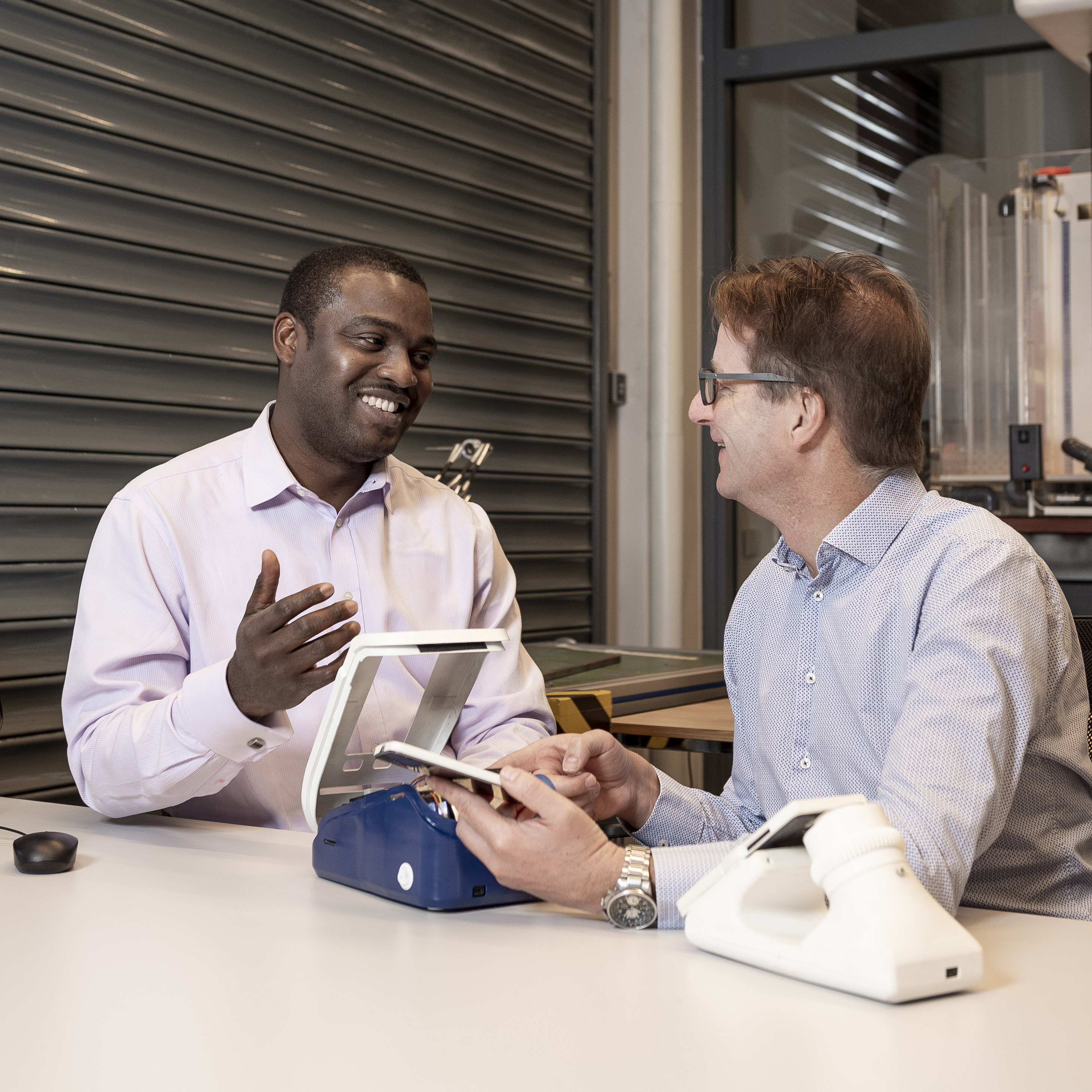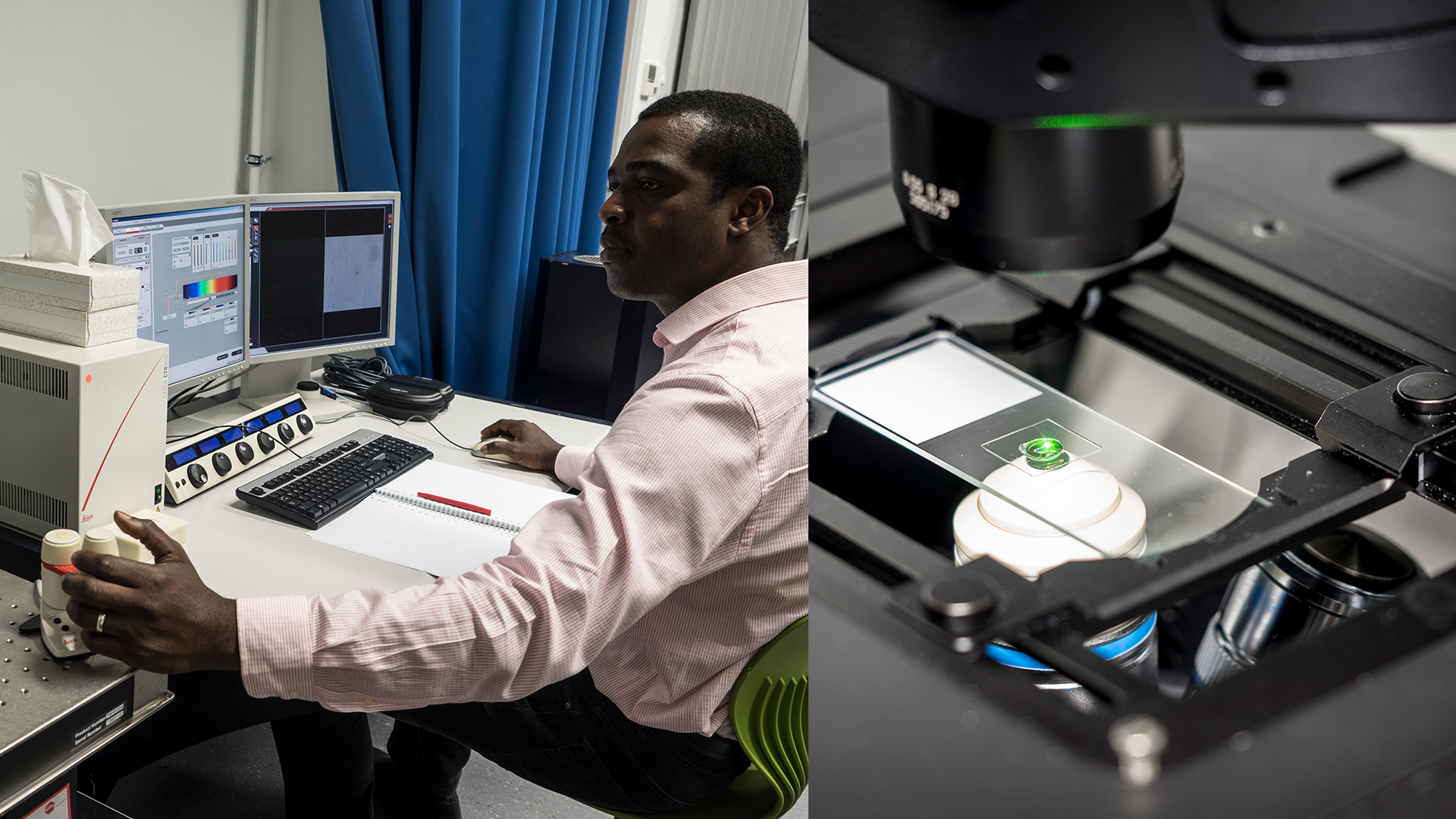Smart optics against smart parasites
This Wednesday May 6th, Temitope ‘Tope’ Agbana successfully defended his PhD on ‘Smart Optics Against Smart Parasites’, at Delft University of Technology (3ME faculty). The defence took place at the Senate room of the Aula while four other committee members joined via Skype . Agbana’s research concerns the early detection of malaria, which is the leading cause of death among pregnant women and young children: 11% of maternal and 20% of under–five deaths are attributed to malaria every year.
Malaria detection
In order to realize current global effort to reduce the heavy malaria burden, the need for a reliable, efficient, accurate and automated point-of-care diagnostic tool cannot be overemphasized. The focus of Agbana’s work is therefore to develop smart optical methods for quick malaria parasite detection in infected patients. Agbana explains, “Conventional light microscopy is the recommended reference diagnostic standard prescribed by the World Health Organisation. Yet while well-equipped laboratories for malaria diagnosis are commonly available in developed urban areas, low-resource settings of malaria endemicity usually have very limited options.”
Cellphone and 3-D printing technology
In 2016 Agbana –together with Prof. Michel Verhaegen & Gleb Vdovine received funding from the Delft Global Initiative for his proposal to combine smart algorithms with technical optics into something that could automatically detect malaria. Leveraging on recent advances in cellphone and 3-D printing technologies, Shortly afterwards, Agbana with a very strong collaboration with Dr. Jan Carel Diehl at the Faculty of Industrial Design Engineering to develop an automated cell-phone based microscope towards the realization of a rapid point-of-care diagnosis of malaria. Aside the cell-phone based microscope, other reliable automated malaria detection systems have been developed. While the research originally focused mainly on developing a tool to detect malaria symptoms, Agbana expanded the research to now also include diagnostics for the neglected tropical disease Schistosomiasis -specifically urogenital schistosomiasis- as well as the sleeping sickness trypanosomiasis that occurs both in humans and livestock. It is their goal that the diagnostic methods and prototype will be used to compliment the limitations of the existing diagnostic techniques.
Start-up
In addition to focusing on his research, he has also successfully set up a start-up (AiDx Medical), which competed in the YES!Delft/EIT Health Validation Lab Competition and won. Furthermore, he acquired several NWO projects/grants while still a PhD student, including a 1M€ grant ‘ INSPiRED’ ( INclusive diagnoStics for Poverty RElated parasitic Diseases in Nigeria and Gabon), and supervised approximately 60 Masters students who worked diligently on this project in various perspective. Tope’s work will be celebrated with a high-level symposium, attended by high-level Nigerian officials and other stakeholders (including the Nigerian Ambassador, a cabinet ministers and administration authorities). Originally meant to take place early May, it will be rescheduled to Fall 2020 due to the Coronavirus.
Agbana will be continuing work at Delft University of Technology as a postdoc on the INSPiRED project in the coming years and will also be working to see how the developed devices will be deployed to the field for practical use.
More information and further reading
Tope Agbana, T.E.Agbana@tudelft.nl
Carola Poleij, Science Communication Advisor, C.Poleij@tudelft.nl, 06 41611510
Delta
TU Delft TV
Portraits of Science
TedxTalk
Inspired Grant


